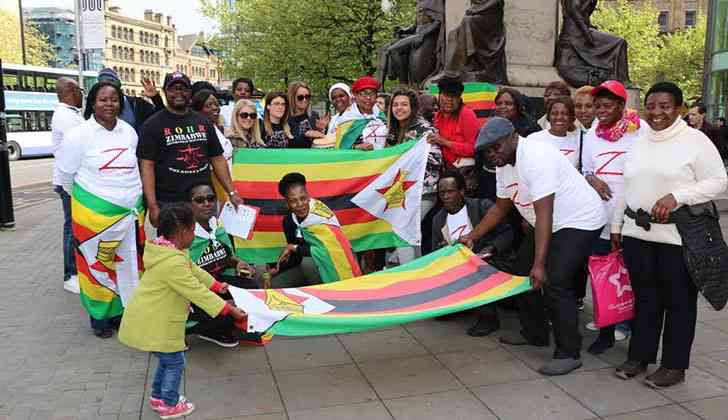
THE importance of a free and independent media cannot be overstated when it comes to holding governments accountable, particularly in Zimbabwe.
A free and independent media serves as a watchdog, providing the crucial checks and balances on government actions and policies.
In Zimbabwe, where political dynamics can be complex and government transparency is sometimes lacking, a free media is vital to ensure information flows freely and citizens are well-informed.
It is crucial for any country to have a free, vibrant independent media.
A free media acts as a bridge between the government and the citizens, ensuring transparency in governance. If journalists can freely investigate and report on government activities, policies and decisions, they will be able to enlighten the public. This transparency fosters accountability by exposing corruption, abuse of power and human rights violations.
Furthermore an independent media ensures that citizens have access to diverse and unbiased information. It empowers people to make informed decisions about their lives and the governance of their country.
Through investigative journalism and in-depth reporting, the media can uncover and highlight issues that affect communities, such as mismanagement of public funds, social injustices and policy failures and inconsistencies.
Added to that, free media acts as a check on the government's power by monitoring its activities and providing critical analysis. It helps to prevent concentration of power and acts as a counterbalance to the government's agenda.
- Mavhunga puts DeMbare into Chibuku quarterfinals
- Bulls to charge into Zimbabwe gold stocks
- Ndiraya concerned as goals dry up
- Letters: How solar power is transforming African farms
Keep Reading
Through investigative reporting, the media can challenge official narratives and hold politicians and public officials accountable for their actions.
In Zimbabwe, a free media can amplify the voices of marginalised communities and provide a platform for their concerns and grievances. It can shed light on social issues, economic disparities, and human rights abuses that might otherwise go unnoticed. By giving a voice to the marginalised, the media helps to create a more inclusive and equitable society.
A free and independent media is the cornerstone of any democratic society. It fosters an informed citizenry and encourages civic participation. By providing accurate and diverse information, the media enables citizens to participate meaningfully in public discourse, make enlightened choices during elections, and engaging in democratic processes.
However the media in Zimbabwe faces a number of challenges in holding the government accountable. One of the main challenges is the government’s control of the media.
The government owns most of the print and broadcast houses, and uses its control to limit the coverage of issues that are critical of the government. This means that the media often self-censor, and is not able to report on issues freely.
In addition, the government has passed laws that limit the freedom of the Press and impose penalties on journalists who report on sensitive topics.
Media suppression
The Zimbabwean government has a history of suppressing independent media outlets. Laws and regulations are often used to restrict freedom of speech and limit the ability of journalists to report critically on government activities.
This includes the use of laws such as the Access to Information and Protection of Privacy Act and the Public Order and Security Act, which were used to target journalists and media organisations in the past.
These laws have since been replaced by equally repressive pieces of legislation in the form of the Freedom of Information Act and the Maintenance of Peace and Order Act.
Intimidation and harassment
Journalists and media organisations from the so-called private or independent stable in Zimbabwe often face intimidation and harassment from government officials, security forces and other powerful individuals.
This includes physical attacks, threats and legal action against journalists and media outlets critical of the government.
Such actions create a climate of fear and self-censorship among journalists.
Lack of access to information
The government of Zimbabwe often restricts access to information, making it difficult for journalists to gather accurate and timely information about government activities and policies. This lack of transparency hampers the media's ability to hold the government accountable.
Citizen journalists and social media users
In recent years, citizen journalists and social media users have emerged as important sources of information and alternative voices. However, the government of Zimbabwe has targeted these individuals, considering them a threat to its control over the narrative. Arrests, prosecutions and social media shutdowns have been used to suppress their activities.
Disinformation and propaganda
The spread of disinformation and propaganda poses a significant challenge to the media's role in holding the government accountable. The government may spread false information or manipulate narratives to shape public opinion and discredit critical reporting. Journalists must navigate this landscape and counter misinformation with accurate, fact-based reporting.
Ownership and control
Media ownership in Zimbabwe is concentrated in the hands of a few individuals and entities with close ties to the government. This lack of diversity and independence in media ownership limits the range of perspectives and voices available in the media landscape.
Financial constraints
Media organisations in Zimbabwe often face financial challenges due to limited advertising revenue, economic instability and government restrictions on funding. These constraints can limit the resources available for investigative journalism and independent reporting.
Zimbabwe should copy other countries that are according their media organisations the freedom they deserve to promote free and fair coverage.
Countries like Ghana have a reputation for having a relatively free and vibrant media landscape. The country has a tradition of independent journalism, and media outlets often play an active role in holding the government accountable through investigative reporting, public interest journalism and critical analysis.
South Africa also has a well-developed media sector with a diverse range of outlets.
Cape Verde has been recognised for its relatively open media environment. The country has a free Press, and journalists are generally able to operate without interference. Media outlets in Cape Verde contribute to political and social debates and hold the government to account through investigative reporting and critical analysis.
A free and independent media is crucial for holding governments accountable in Zimbabwe. It promotes transparency, fosters public awareness, acts as a check on power, amplifies marginalised voices and strengthens democracy. Protecting and promoting media freedom is essential for a healthy and vibrant society in which citizens can hold their government accountable and participate actively in shaping their nation's future.
- Gary Gerald Mtombeni is a journalist based in Harare. He writes here in his personal capacity.










